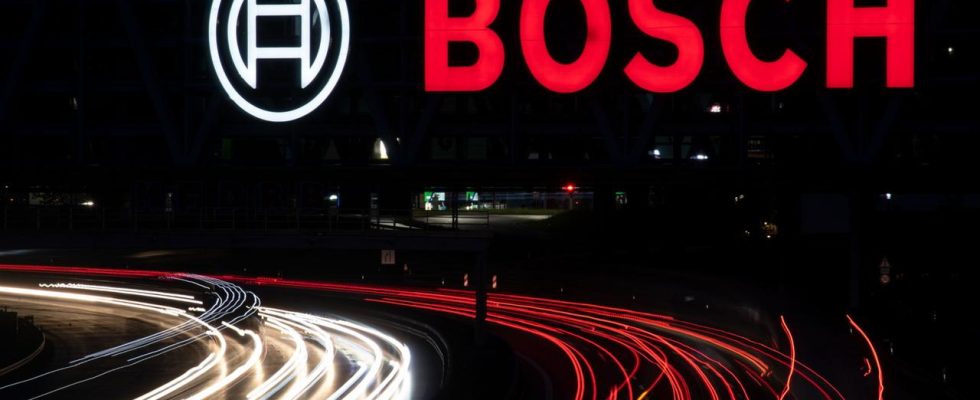The Stuttgart-based Bosch Group wants to further reduce costs – and is cautious about the coming months due to the economic downturn. The company is undergoing a profound restructuring process.
At the end of March it got loud at Schillerhöhe, the otherwise idyllic headquarters of the Stuttgart technology group Bosch. A good 10,000 demonstrators stood in front of the headquarters – symbolically at five to twelve. With whistles, red hats and IG Metall flags. They protested loudly against the announced job cuts at Bosch, which will probably result in the loss of several thousand jobs, and not just in the company’s important automotive division.
Automotive business brings in the most sales
Bosch wants to be more than just an automotive supplier. They are emphasizing this right now at Schillerhöhe. And it’s true: the group’s three other divisions, industrial customer business, building management and household appliances, also generate billions in sales and are among the innovation drivers and market leaders in their areas. In other words, they meet the high goals the group has set itself.
Bosch is, above all, the largest automotive supplier in the world. The “cash cow” in the group, the source of sales and profits, remains the auto parts business: 56.3 billion euros were generated here alone in 2023. This is significantly more than half of the entire group’s sales of 91.6 billion euros in the past financial year.
Group profit rose to 4.8 billion euros, one billion more than in the previous financial year. Bosch boss Stefan Hartung announced this today at the presentation of the annual balance sheet in Renningen near Stuttgart.
Change in the industry also threatens jobs at Bosch
But in the heart of the company – where most of the approximately 133,800 Bosch employees in Germany work – there is a threat of trouble. The union has criticized the announced austerity measures and the planned staff cuts as “short-sighted”. Bosch works council head Frank Sell accused the management of “brute force at high speed”. Most recently, it was planned that 3,800 of the almost 430,000 jobs worldwide would be cut by 2026.
It has now become known that these job cuts could be smaller than initially planned. The discussions on this between management and the works council are on the home stretch, says Bosch boss Hartung. Bosch’s prospects for the current year 2024 remain cautious due to the current economic downturn. In any case, “no economic tailwind” is expected, it said.
Discussions with the works council
Management and the works council are holding discussions about how the restructuring at Bosch should be carried out. After the showdown at the end of March, things are now on the right track at Schillerhöhe, the company says. A common timetable for the ongoing negotiations was agreed with the general works council. Bosch has promised to invest a total of around 700 million euros in the training and qualification of its employees in the mobility division in Germany by 2027.
A further four billion euros are to flow into machinery and equipment as well as research and development at the German locations of the affected business areas in 2024 and 2025. It is an initial approach to the employee side. One thing is clear: Bosch is not alone in the automotive business with the challenge of mastering the transformation well.
Electromobility comes to a halt
There is a lot of uncertainty throughout the German automotive industry, among manufacturers and suppliers such as Bosch, ZF Friedrichshafen and the Stuttgart piston manufacturer Mahle. The ramp-up of electromobility is stalling.
The end of the combustion engine in the EU is foreseeable. In fact, petrol and diesel engines are currently experiencing an astonishing comeback among customers. This is shown, among other things, by current registration figures from the Association of the German Automotive Industry.
Customers doubt electric cars
There are many reasons for this: for example, the high cost of electric cars, especially those made in Germany. So customers hesitate. They don’t know whether they should buy a new car – and if so, what kind. This hesitation is felt by the entire industry, including Bosch. Even if the group supplies up-and-coming Chinese car manufacturers such as BYD.
Bosch wants to become more independent of the automobile division and further expand and strengthen the other business areas. The group will not change the dominance of the automotive business. But defending our position as the world’s largest automotive supplier in the future remains a major challenge.
Lutz Heyser, SWR, tagesschau, April 18, 2024 12:07 p.m

